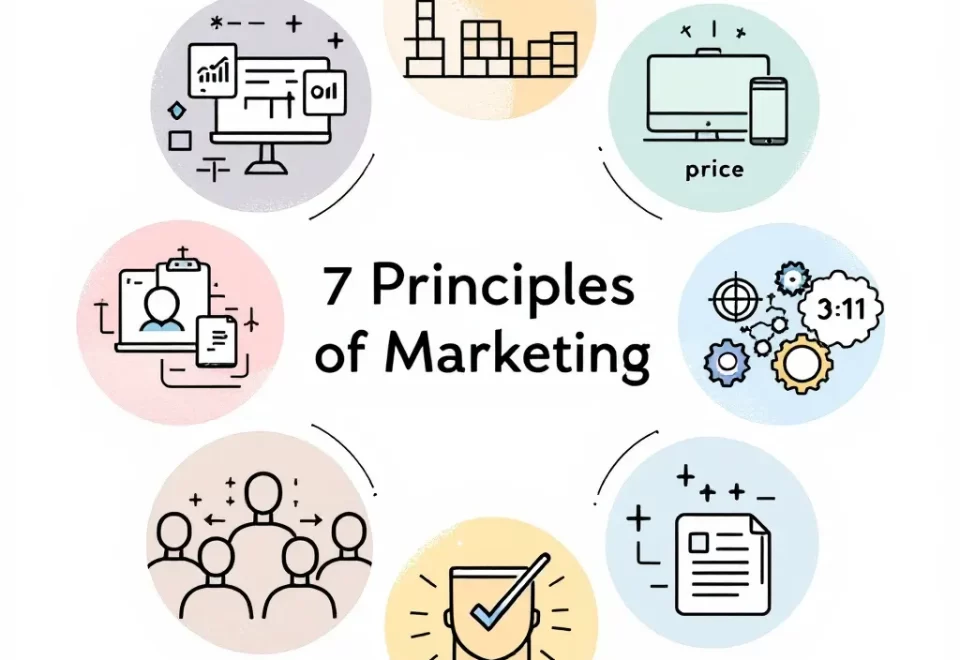All scale-up businesses want to grow bigger and make more profit. Knowing how to go about this to get the best outcome, however, can seem overwhelming.
As with all aspects of your business, it’s important to break down your desired growth into manageable sections. From this, you can identify specifically where and how your business needs to grow; and from there, create an actionable plan to make it a reality.
Determining the specific areas to concentrate on may seem like a daunting task, so here’s a rundown of some of the things you could put on your checklist. Consider what your business does well and poorly for each part and try to strengthen it.
How you market your business will have a massive effect on how your business grows. Afterall, your customers need to know you exist to work with you. These top tips will look at how your marketing strategy affects your business growth.
Specify Your Branding
Your branding is your business. It’s how you develop your status, attract customers and convince investors. Without a clear and memorable brand, your business will struggle to achieve the growth you desire.
It comes down to what you offer; and more than that, how you explain it. Many businesses know what they offer but struggle to effectively explain themselves to their market.
The key is to keep it simple. Try to explain what your business actually does and what it offers in one sentence, and if you can’t – try again.
The messaging you use is key to your business’s branding and growth. Once you’ve succinctly drilled down to what your business does, it’s essential that all future content that goes through your channels is on point.
By having an organised and consistent company message, your business will appear focused and purposeful. Branding is also crucial because it creates a memorable visual impression.
Your branding is what the consumer or investor will picture in their head when they think of your business. From that they’ll build their subconscious impression of your business. Through your branding, such as use of colours and logos, you can ensure the impression the consumer or investor has when thinking of your business is a positive one.
If your business’s branding isn’t its strongest area, then prioritising this as an action could be a great idea. If you don’t have anyone internal to your business with the expertise to champion this, you could seek external help. Something like support from an experienced marketing team could help you build a winning marketing strategy.
Do you need help to grow your scale-up business?
Define Your Value Proposition
Linked to branding and your “one-sentence-business-description,” you need to look at your business’s Value Proposition. This is a concept that used to be referred to as your Unique Selling Point (USP), which may be what you’re familiar with.
What is it that you do that no one else does? And more importantly, why should customers and investors choose your business over your competition?
Answering these questions is key to selling yourself. Your growth needs people to buy into what makes you special. To convince them, you need to understand what that is first.
A useful tool to identify your USP is the Value Proposition table. It’s a very simple two-by-two table that can be drawn on a whiteboard or flipchart with each of the four boxes having a different heading:
| Unique to my company | Stronger at my company |
| Everyone has this | Weaker at my company |
This table should be filled out by all of your business’s Board of Directors to get as many ideas and perspectives as possible. Don’t worry about analysing suggestions until you’ve got plenty. This exercise will not only help you identify your value proposition but help you understand your business’s place within the market.
Recognising what other businesses do and don’t do, as well as what’s stronger or weaker at your business, will help you to improve your growth strategy as you look to move forwards. Just be careful to not get tied up in monitoring competitors, you still need to be your own business.
It’s always useful to keep this question in mind — “how does my business stand out from the crowd?” as you think about your value proposition. Afterall, if it doesn’t, then you can’t expect people to choose you.
Evaluate Your Lead Generation
How you generate leads is the lifeblood of your business. Therefore, it’s essential to analyse how you get your leads and where you can improve in the approaches you already take.
You need to define who you’re selling to and what their needs are. Consumer needs have to be defined because, ultimately, meeting the customers’ needs is how you’ll see growth within your business. Building a customer profile will help you tailor your methods and message to fit your audience.
Not all leads will automatically become your customers, so you want your lead generation to be as widespread as possible. The wider the top of your marketing funnel is, the more people you’ll catch. This is about creating awareness of your brand, so that you come to mind when they’re thinking about what options are available.
From there, you can take the necessary action to convert them into a sale. Once they’ve warmed up to your brand, they’ll be easier to sell to and should hopefully keep coming back.
Contacting Your Leads
Evaluating the way you contact people is a crucial aspect of lead generation. How do you do it? Is it the most effective way?
You must define your process and keep it under constant review to maximize your effectiveness in communication with potential leads. Is your route to market direct or via a third party? And whichever it is, is it the most effective way to operate?
Your marketing should be keeping up with where your customers are found. You want your brand to be visible on the platforms they use, not the ones you’re comfortable with.
Feeling stuck and having difficulties to grow your scale-up business? Leave it to the experts!
Understanding Where Your Leads are in the Market
Similarly you must keep an eye on customer segmentation — which part of the market is buying your product or service and has that changed? This is important to do, especially if there’s been a dramatic change to the market caused by external factors.
Lots of things can disrupt your market, so you need to stay on top of how the world is developing. For example, if you’re selling to a business, people will retire. As the older members leave and are replaced by newer, younger people, the business’s preferences will change with them.
Develop Your Communication Tools
When you’ve specified your value proposition, defined a clear message, and established who your customers are, then you need to look at your communication. This is a crucial aspect of business growth, because this is how you show customers and investors the work and planning you’ve done.
The first step is to evaluate how you’re telling potential customers and investors about your business, brand and message? You can communicate your message through such a wide range of channels.
So much so, that it’s even worth combining some of these to see which one works best for connecting your customers to you. Possible options for avenues of communication are:
- A website
- Social Media
- SEO and Paid Search
- Public Relations
- Trade Shows
- Advertising
- Telesales
If you or anyone on your Board of Directors has experience with any methods, then this can be a great place to start. Developing a marketing strategy involves deciding what you want to try and having a go at it. It won’t always work out, but often you need to try to learn.
It’s critical to have a consistent evaluation process when it comes to your communication strategy. You need to analyse what’s been working for you: where you think you’re getting your message across and where you’re not.
Never forget your target audience in your communication. The way you talk to them should fit the language they use and are comfortable with. You don’t want them to feel alienated by your communications, as it may turn them away from your brand.
No matter which channels you use, you want to make sure that the messaging in your communications is consistent. You may vary the content to fit different parts of your market, but the core of what you’re telling customers should stay the same.
Again, your brand is who you are. Your communications should reflect the impression you want your brand to give the customers. The means and the message shouldn’t clash with each other if you want your marketing to be effective.
Summary on How to Grow Your Scale-Up Business
Through these tips, you should be able to identify the specific areas in your business that need your attention to help you develop a better strategy for growth.
If you ever feel like you’re stuck despite giving these tips a try, you can get a FREE, personalized analysis of your business’s growth strategy and specific examples of where you can improve.
Growth Hackers is an award-winning small business SEO agency helping businesses from all over the world grow. There is no fluff with Growth Hackers. We help entrepreneurs and business owners grow their scale-up business, generate qualified leads, optimize their conversion rate, gather and analyze data analytics, acquire and retain users and increase sales. We go further than brand awareness and exposure. We make sure that the strategies we implement move the needle so your business grow, strive and succeed. If you too want your business to reach new heights, contact Growth Hackers today so we can discuss about your brand and create a custom growth plan for you. You’re just one click away to skyrocket your business.







